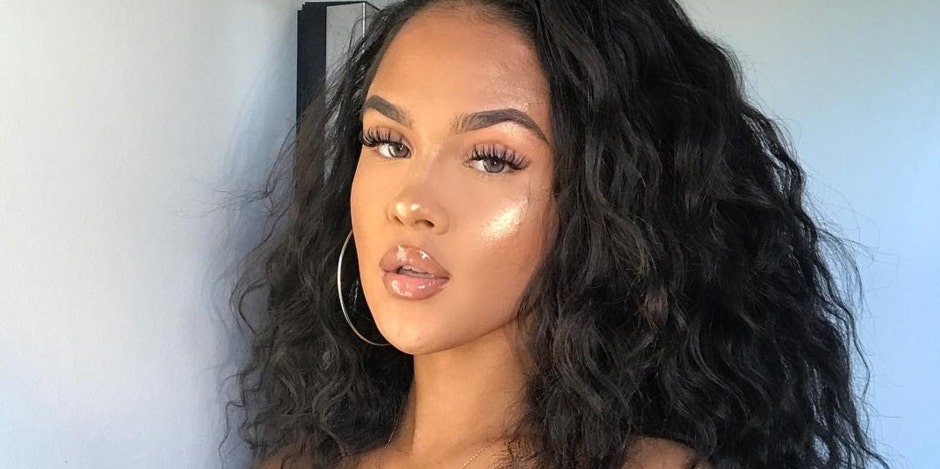Who Is Emma Hallberg? Details About The Instagram Model Accused Of 'Blackfishing'
Rachel Dolezal has a new model counterpart.
 instagram
instagram Who is Emma Hallberg? The 19-year-old Instagram model has been accused of "blackfishing."
According to The Daily Beast, blackfishing is the disturbing trend of white women styling their clothes, hair, and aesthetic of black women without clearly disclosing their white heritage, all in order to gain a social following.
The Swedish model and beauty influencer Hallberg has over 245,500 followers on Instagram, and nearly 17,000 followers on YouTube, where she posted her first video on October 28.
RELATED: 9 Major Reasons Cultural Appropriation Is SO Harmful
Two weeks ago, Hallberg posted a story on her Instagram — which is still pinned to her account — in response to the claims that she was posing as a black woman. The picture posted on Twitter compared photos of Hallberg, one with little-to-no makeup and the other from her Instagram with a full face of makeup, calling Hallberg out for pretending to be black. Her skin tones are clearly different in the pictures, seemingly beyond a simple tan.
Hallberg's story, which is almost all text, begins with the phrase “LET ME EXPLAIN” stamped on a black screen. She then said she had to turn off the comments on her account because of the hateful messages she was receiving.
Hallberg attempted to contextualize the two photos that went viral, with the one on the left being from two years ago before the summer, and the one on the right from the past summer right after she returned from vacation. She addressed rumors and accusations of her “...doing frequent spray tans, taking [sic] melatonin [melanin], getting hair perms and lip injections and many more. When I haven’t done anything of the above.”
She also defended her use of dark makeup: “...I use a darker foundation than my face only to match it to the rest of my body. Why my body is less tanned than my body is because I have some acne and scar issues so I use a lot of face scrubs, toners and peeling products.”
Hallberg provided evidence of her dark skin, atypical of Scandinavian women, through pictures of her father and brother, who appear tan as well. She also shared a photo of her with her brother during the summer; Hallberg accredited their skin tones with being darker due to time in the sun. To combat claims against her hair, Hallberg shared clips of her running her fingers through her mother’s curly black hair, along with her own hair shortly after washing it.
RELATED: I Have 3 Pieces Of Advice For The White Lady Pretending To Be Black
Hallberg's story claims that she doesn't gain a following because of her skin color.

Photo: Instagram
However, it’s difficult to ignore the aspects and presentation of her appearance that suggest a non-white background. Hallberg has also promoted an extension brand, MS Here Hair, that sells wigs and extensions marketed towards black women, with its human hair products supplied by people of color from Peru, Brazil, Malaysia, and India.
Hallberg is unfortunately one of many social media influencers accused of engaging in blackfishing. Another popular Instagram user, Alicja Brzotowska, told Daily Beast, “I come from Poland originally. However, my ancestors migrated from India, so it could explain the fact that I don’t have the typical pale skin and blonde hair [of Polish people].”
Regardless, the members of the blackfishing movement argue that tanner skin does not equate to being black, and that these influencers are posing as members of black culture: appropriating their culture, rather than appreciating it.
RELATED: 7 Awful Ways Liberal White Women Fetishize Women Of Color
Alison Cerri is an editorial intern at YourTango. When she's not writing, she can be found on a run or at rugby practice. Follow her on Instagram.

